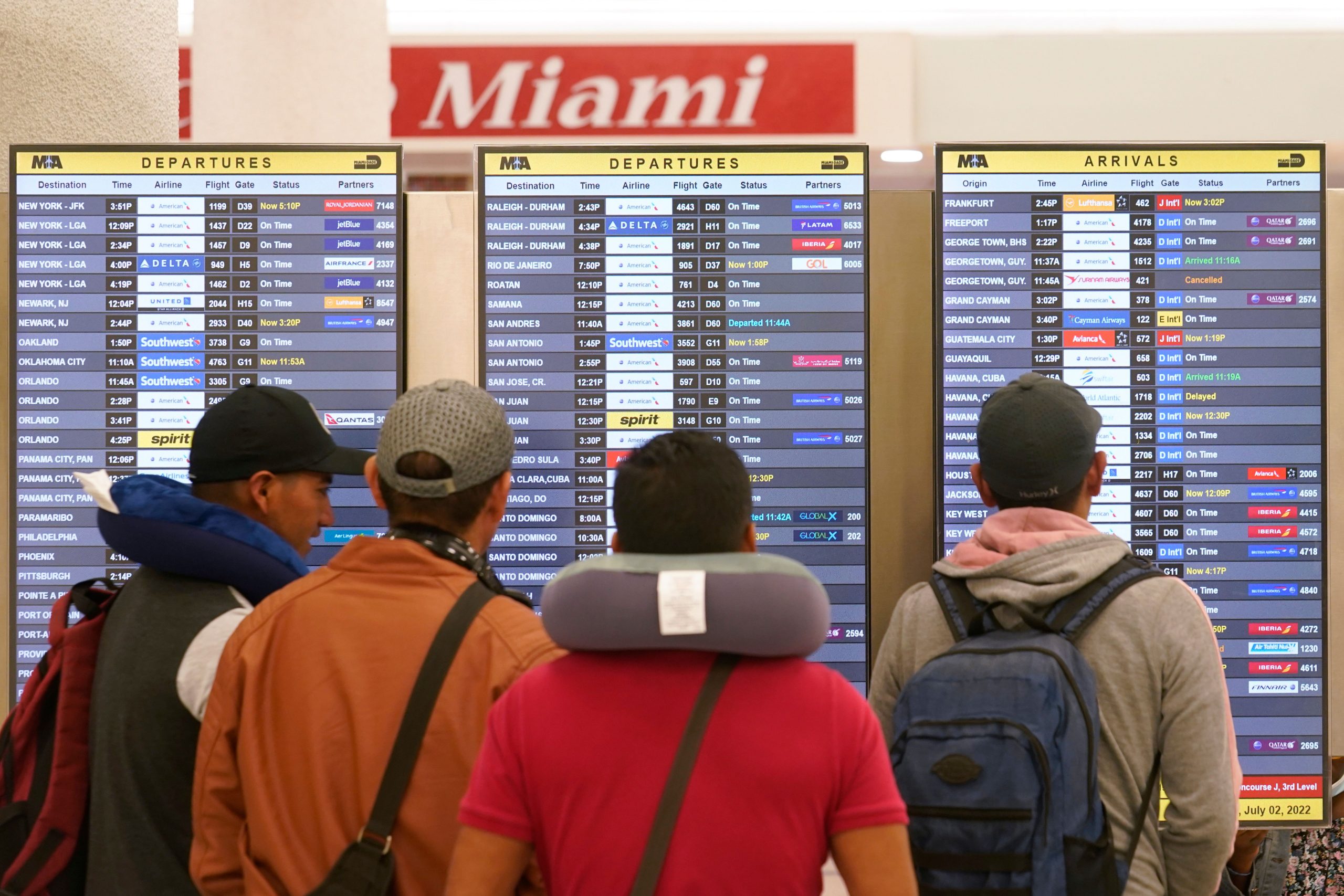The chaos of the Fourth of July holiday weekend has taken over US airports, from one coast to the other. This year’s Independence Day celebrations will be the first one with barely any travel restrictions since the COVID-19 pandemic broke out in 2020.
The US Transportation Security Administration released statistics that said the volume of travellers in the country has broken pandemic records this time. The previous high was 2.46 million reached earlier in the week. On Friday, more than 2.49 million passengers went through security checkpoints in the US.
Also Read: Photos: Amid COVID pandemic, Americans celebrate Fourth of July with pomp
Passengers flying on July 1, 2022, were 13% more than those who boarded planes exactly one year before. The Fourth of July in 2019 was on a Thursday, making it one of the busiest airport days recorded across the country. However, this year’s passengers broke that record too. Nearly 2.35 million people were screened on July 4, 2019.
As the COVID-19 pandemic shows signs of slowing down, America’s air travel industry has picked up the pace once again. An average of 2.33 million passengers have passed through security checkpoints at domestic airports during the seven days ending July 1, according to AP reports.
Rush hour at US airports
The airport chaos has largely been concentrated in mid-western areas and on the west coast. The situation also worsened for the east coast over the weekend, with powerful thunderstorms and unfriendly weather.
Also Read: Fourth of July: Which US cities have cancelled fireworks and why
According to the tracking site FlightAware, more than 600 flights in the US were cancelled on Friday, leaving thousands of passengers stranded. An additional 4,000 flights were delayed, further jamming the airports.
A tough weekend for travellers
The troubles did not stop for travellers at clogged airports and bad weather conditions. Many people were also forced to pay high ticket prices as inflation has pushed fuel costs to historic highs. Travellers also had to navigate their way around COVID-19-related restrictions, which have significantly decreased over the past months.







